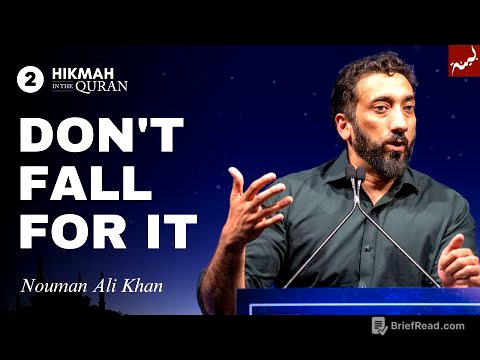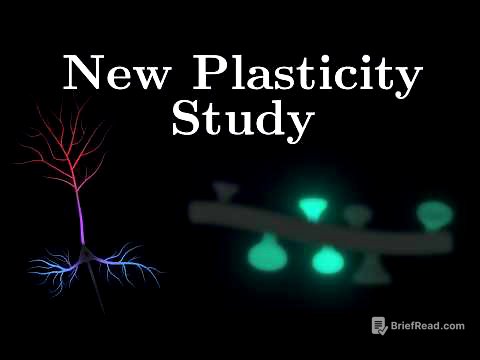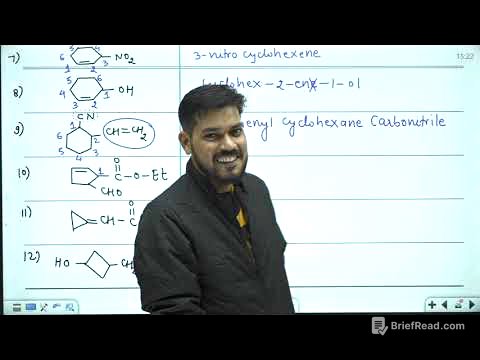TLDR;
This video presents a collection of verses focused on the power of the mind, the importance of mindfulness, and the path to liberation. It emphasizes how our thoughts and actions shape our experiences, highlighting the consequences of both wholesome and unwholesome states of mind. The teachings underscore the need for self-control, wisdom, and vigilance in order to overcome suffering and attain enlightenment.
- The mind is the key to all experiences, shaping both suffering and happiness.
- Mindfulness and heedfulness are essential for spiritual progress and avoiding the path to death.
- Overcoming negative emotions and attachments leads to freedom and the realization of Nibbana.
The Power of the Mind [0:36]
The mind is the most important thing, it is the forerunner of all states. If one speaks or acts with an unwholesome mind, suffering follows like a wheel follows the hoof of an ox. Conversely, if one speaks or acts with a pure mind, happiness follows like a shadow that never leaves. Hatred is never appeased by hatred, only by love, which is an eternal law.
Living Wisely vs. Unwisely [2:15]
The video contrasts two ways of living: one who lives contemplating pleasant things with unrestrained senses, immoderate in food, indolent, and inactive is easily overthrown by Mara, like a weak tree by the wind. On the other hand, one who contemplates impurities, with restrained senses, moderate in food, full of faith and sustained energy, cannot be overthrown by Mara, like a rocky mountain that the wind cannot move.
Realizing the Essence [3:18]
The text distinguishes between those who perceive the essential as unessential and vice versa, and those who perceive things correctly. Those with wrong thoughts never realize the essence, while those with right thoughts do. This is further illustrated by the analogy of a poorly thatched house being penetrated by rain, symbolizing an undeveloped mind being penetrated by lust, versus a well-thatched house that remains dry, symbolizing a well-developed mind that lust cannot penetrate.
Action vs. Words [4:38]
The importance of practicing what one preaches is emphasized. Those who recite sacred texts but do not act accordingly are like a cowherd counting others' cows, gaining no personal benefit. In contrast, those who recite little but act in accordance with the teachings, forsaking lust, hatred, and ignorance, and freeing their minds, share in the fruits of the holy life.
Mindfulness vs. Heedlessness [5:39]
Mindfulness is presented as the path to the deathless, while heedlessness is the path to death. The mindful do not die, while the heedless are like the dead. The wise, understanding this difference, focus on mindfulness, rejoice in heedfulness, and delight in the realm of the noble ones. The constantly meditative and steadfast realize the bond-free supreme state of Nibbana.
The Nature and Control of the Mind [7:19]
The mind is described as flickering, fickle, difficult to guard and control. A wise person straightens it like a fletcher straightens an arrow. Like a fish drawn from water and thrown on land, the mind flutters, so one should shun the realm of passions. The mind is very difficult to perceive, delicate, and subtle, moving wherever it pleases; therefore, the wise should guard it, as a guarded mind brings happiness.
Subduing the Mind [8:36]
The mind, fearing far wandering, alone and bodiless, lies in a cave. Those who subdue it are freed from the bonds of Mara. One whose mind is not steadfast, who does not know the true doctrine, and whose confidence wavers will never have perfect wisdom. However, one whose mind is not soaked by lust, is unaffected by hatred, and has transcended both good and evil has no fear.
Strengthening the Mind [10:06]
Realizing the body's fragility, like a jar, one should establish the mind as firm as a fortified city. Attack Mara with the weapon of wisdom, guard your conquest, and be without attachment. An ill-directed mind can do far greater harm than any foe or hater, while a well-directed mind elevates one beyond what even parents or relatives can do.
Overcoming Sensual Passion [11:50]
Knowing the body is like foam and comprehending its mirage nature, one should destroy the flower shafts of sensual passion and pass beyond the sight of the king of death. One who gathers flowers of sensual pleasure and whose mind is entangled is carried off by death like a sleeping village swept away by a great flood.
Self-Reflection [12:41]
Instead of focusing on the faults of others or what they have done or not done, one should consider what one has done and left undone oneself. A lovely but scentless flower is like the well-spoken word of one who does not practice it, while a lovely and scent-laden flower is like the well-spoken word of one who practices it.
The Path of the Virtuous [13:49]
Mara cannot find the path of those who are virtuous, careful in living, and freed by right knowledge. The ignorant think they are secured by their sons and wealth, but they are not even their own; how can sons or wealth belong to them? A fool who knows they are a fool is wise for that reason, but a fool who thinks they are wise is truly a fool.
Understanding the Dharma [15:22]
An intelligent person quickly understands the Dharma, even with brief association with a wise one, just as the tongue knows the taste of soup. As long as an evil deed does not ripen, the fool thinks it is like honey, but when it ripens, the fool comes to grief.
The Path of the Passionless [16:16]
The path of one whose passions are destroyed, who is indifferent to food, and whose object is the void and unconditioned freedom cannot be traced, like that of birds through the sky. Through many births, one wanders seeking the builder of this dwelling, but repeated birth is sorrowful. The housebuilder is seen, all rafters and ridgepole are broken, the mind is dissolved, and the extinction of desire has been achieved.
Living Righteously [17:41]
Arise, be not negligent, and lead a righteous life. The righteous person lives happily both in this world and in the next. To cease from all evil, to cultivate good, and to purify one's mind is the teaching of all the Buddhas.









